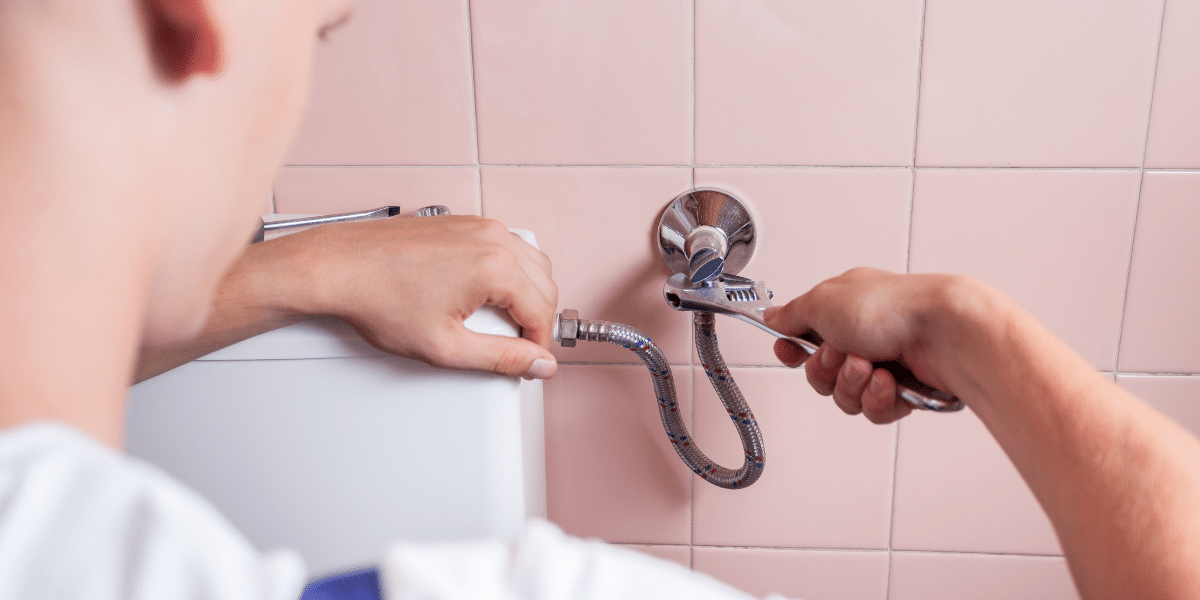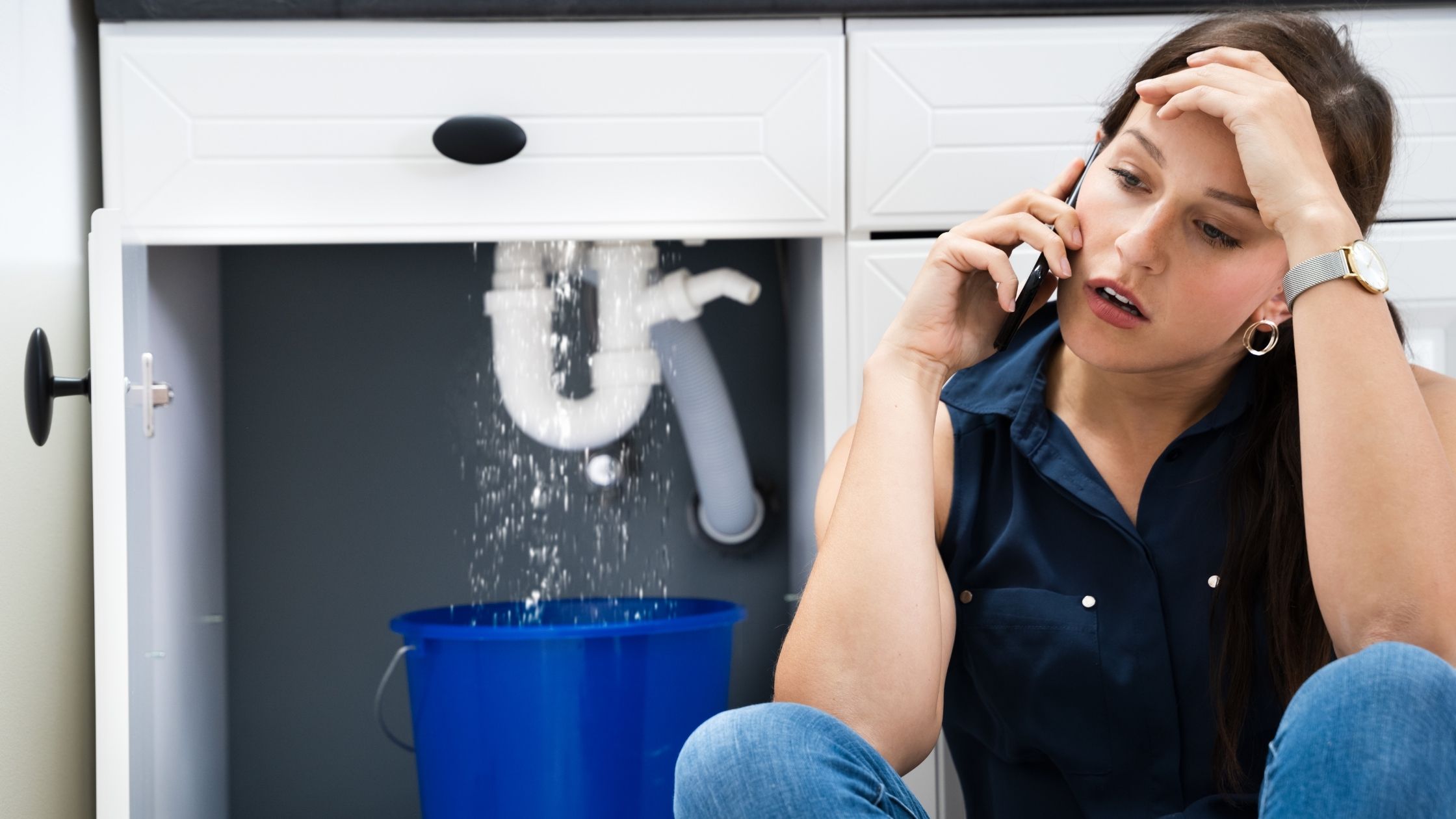The 5 Consistent Water Leak Factors
The 5 Consistent Water Leak Factors
Blog Article
What are your insights and beliefs on Reasons for Water Heater Leaks?

"Beware of little expenditures. A little leakage will sink a fantastic ship." - Benjamin Franklin.
He could not have been more right due to the fact that water leakages in our residences lead to a waste of resources, boosting our water expenses. Although this increase may appear minimal at first, it can bring about significant expenditures that can damage your financial institution. Apart from an increase in expenses, water leakages also cause undesirable organic growth, structural damages, and even electric threats.
Determining if you have a water leakage isn't always easy because of being incapable to see the majority of the pipework in your house. However, If you have had a boost in your water expenses lately, saw water discolorations on ceilings as well as walls, smelt poor smell, etc. You might want to consider requesting plumbing services to get it took a look at.
There are numerous causes of water leaks, and we have actually compiled the common factors below. Check to see if you have actually had associated concerns in your house recently.
Clogged drains
Food particles, dirt, and oil can trigger blocked drains pipes and obstruct the flow of water in and out of your sink. If undealt with, boosted stress within the gutters can finish and also trigger an overflow up breaking or rupturing pipes. To avoid blocked drains pipes in your home, we suggest you to prevent putting particles down the drain and routine cleansing of sinks.
High water pressure
You noticed your home water stress is greater than normal however then, why should you care? It's out of your control.
It would be best if you cared because your average water pressure need to be 60 Psi (per square inch) and although your house's plumbing system is created to hold up against 80 Psi. A boost in water pressure can put a pressure on your home pipelines and also lead to fractures, or worse, burst pipes. If you ever notice that your house water pressure is higher than common, get in touch with a professional about regulating it.
Deterioration
As your pipework grows older, it obtains weak and much more prone to rust after the regular flow of water via them, which can eat away at pipelines and trigger splits. A visible sign of rust in your home plumbing system is discoloration and although this may be tough to identify because of the majority of pipes hidden away. We advise doing a frequent checkup every couple of years and change pipes once they are old to guarantee a sound plumbing system
Compromised pipe joints
Pipe joints are the parts of our plumbing system where the pipes attach. They are the weakest factor of our plumbing system. Therefore, they are much more vulnerable to degeneration. It is important to keep in mind that even though pipelines are developed to hold up against pressure and also last for some time, they weren't made to last permanently; therefore, they would certainly wear away with time. This damage could bring about splits in plumbing systems. A common indicator of harmed pipe joints is too much noise from taps.
Busted seals
One more root cause of water leaks in houses is damaged seals of house devices that make use of water, e.g., a dishwashing machine. When such appliances are installed, seals are mounted around water ports for simple passage of water with the equipment. Thus, a broken seal can cause leak of water when in use.
With little or no understanding of plumbing, understanding your residence's plumbing system sufficient to repair some of these issues (without effect) can be a hassle. Get in touch with plumbing professionals in Pittsburgh, Divine Superintendence, Rochester, and environ today, as well as they'll make those problems vanish.
He couldn't have actually been a lot more best since water leakages in our houses result in a waste of sources, raising our water bills. If you have had a rise in your water expenses lately, discovered water discolorations on ceilings and wall surfaces, smelt lousy odor, etc. An increase in water stress can place a strain on your home pipelines and also lead to fractures, or worse, burst pipelines. Another reason of water leakages in houses is damaged seals of residence devices that utilize water, e.g., a dishwasher. When such appliances are set up, seals are set up around water adapters for simple passage of water via the equipment.
WATER LEAK PLUMBING: EVERYTHING YOU NEED TO KNOW
IDENTIFYING WATER LEAKS
If you are certain that there is a water leak in your home or office, there are some things that you can do to confirm that there is in fact a leak.
The use of your water meter is one thing that can assist you with determining if there is a leak, along with some steps that can be taken to address it when possible. (Otherwise, you may be required to call in a professional plumber.)
TEMPORARILY DISCONTINUE THE USE OF WATER
First and foremost, turn off all water outlets in your home or office to make sure that no water will be used for at least 30 minutes; including water used for ice makers, water filters, fish tanks, coolers, etc.
TYPICAL CAUSES OF THE MOST COMMON WATER LEAKS
The source of a leak could be from many areas, which could be on the inside or the outside of your home or office. However, some of the most common leaks come from the following as indicated below:
FAUCETS The most common types of leaks are leaks from a faucet. A leaky faucet in the bathroom, kitchen, laundry room or basement are the most common issues in the home. Pipes connected to water hoses are one of the most common leaky faucets found outside of the home. Leaky faucets are normally due to worn washers that need to be replaced. Overtime the rubber washers wear due to use and the pressure on it from the tap. If this issue is overlooked for a substantial period time, it could result in a lot of wasted water and often a high water bill. Although a worn washer is normally what’s responsible for leaky faucets, sometimes it’s something that’s a lot more serious. Where the washes is not worn, contact one of our professional plumbers at Heritage Plumbing Group for assistance. TOILET A leaky toilet is not as easy to detect as a leaky faucet. It is sometimes quieter and often gets ignored because of it. A leaky toilet is one way to waste several hundred gallons of water on an annual basis. It can be the cause of an exceptionally high water bill; and, sometimes you might not know about the issue. A leaky toilet is relatively easy to repair, but the issue is pinpointing the exact source of the problem. This may require the assistance of a professional plumber to know for sure which part of the toilet has been compromised. Call us to learn how we can repair your leaky toilet. There are a few things that could cause a toilet to leak. The most common causes include the following: –The Overflow Tube – The overflow tube is what stops the tank from overflowing. However, if the water gets too high, it can create a leak. –The Flapper – The flapper is what gets lifted when water needs to flow after the toilet is flushed. If the flapper becomes damaged or worn out, it can cause the toilet to leak. –The Flush Handle – The flush handlebar, button or chain can cause your toilet to run for a long period of time (usually until someone jiggles the handle or button to reset the internal mechanism). THE ROOF Having a leaky roof can be one of the most inconvenient types of leaks there are. It can be very damaging and worsen relatively quickly. Not only that, but the leakage from your roof could ruin the internal structure of your property and your furniture, carpet or other items in your home depending on where the leak is located. In most cases, a roof begins to leak when it experiences normal wear and tear or if it has missing shingles. This causes the roof to become more exposed and susceptible to further damage; including additional water damage that could spread to other nearby parts of the roof. The only good thing about a leaky roof is that it is easy to spot the source of the problem. The best way to identify that there’s a potential problem with your roof is the appearance of water stains that you may notice on the ceiling or on parts of the walls; typically a yellowish colour or where the paint has bubbled or peeled. Like other leaks, a stained ceiling is only a sign of other problems that are soon to come if left unattended. A leaky roof can develop larger problems such as mould, soiled or rotted sheathing and framing. It can also destroy insulation, cause major damage to ceiling structures, lighting fixtures and more. The cost to repair a leaky roof can be very expensive, which is why it’s highly recommended to address the issue at the first sign of a leak with a professional roof plumber from the Heritage Plumbing Group. https://www.heritageplumbinggroup.com.au/water-leak-plumbing-melbourne/

Do you appreciate more info about How to Find and Prevent Water Leaks in Your Home? Place a review further down. We will be interested to know your thinking about this review. Hoping that you visit us again later on. If you please take the time to distribute this blog entry if you appreciated it. Thanks a bunch for your time. Kindly check up our website back soon.
We're your answer! Report this page